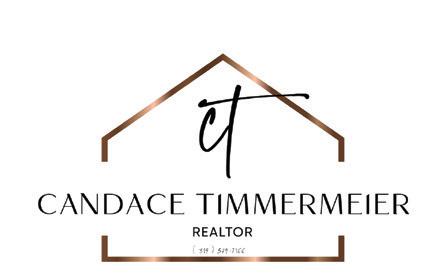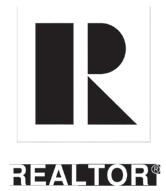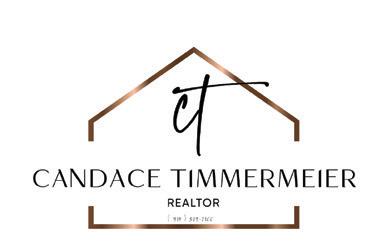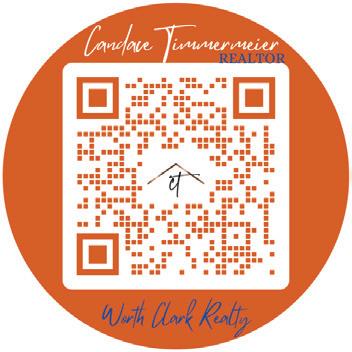




























1
• Begin your online home search
• We will set up showings






























• Begin your online home search
• We will set up showings
• Meet with a lender
• Determine the right mortgage
• Get a pre-approval letter
• Title Search
3
• Go view the homes you are interested in
• Schedule inspections
• Issue Title Insurance
• Research comparable comps with agent
• Put in a strong offer
• Negotiate the terms of the contract
• Negotiate any repair requests and issues from inspector
6 FINANCING
• Order appraisal
• Obtain homeowners insurance
• Receive clear to close from lender
• Perform final walk-through before closing
• Sign closing documents
• Get your keys and celebrate buying your home







Amy Wulf is proud to work with the community on behalf of New American Funding. Being in this industry for over 25 years has taught her that building trust in her relationships-whether it is with business partners, clients, friends, or associates-is key to longevity and success in this industry. Choosing the right loan officer is as important as choosing the right mortgage and the right home. She considers herself a lender for life. She will remain in contact with you long after your closing to assist you in any way possible. It may be as simple as lowering your rate with a refinance, helping with your next purchase, providing options to help credit or simply paying off your mortgage in record time.









































Application: The first step in the official loan approval process; this form is used to record important information about the potential borrower necessary to the underwriting process.
Appraisal: A document that gives an estimate of a property’s fair market value; an appraisal is generally required by a lender before loan approval to ensure that the mortgage loan amount is not more than the value of the property.
Closing: Also known as settlement, this is the first time at which the property is formally sold and transferred from the seller to the buyer; it is at this time that the borrower takes on the loan obligation, pays all closing costs, and receives title from the seller.
Closing Costs: Customary costs above and beyond the sale price of the property that must be paid to cover the transfer of ownership at closing; these costs generally vary by geographic location and are typically detailed to the borrower after submission of a loan application.
Debt-to-Income Ratio: A comparison of gross income to housing and non-housing expenses; with the FHA, the monthly mortgage payment should be no more than 29% of monthly gross income (before taxes) and the mortgage payment combined with non-housing debts should not exceed 41% of income.
Down Payment: The portion of a home’s purchase price that is paid in cash and is not part of the mortgage loan.
Earnest Money: Money put down by a potential buyer to show that he or she is serious about purchasing the home; it becomes part of the down payment if the offer is accepted, is returned if the offer is rejected, or is forfeited if the buyer pulls out of the deal.
Escrow Account: A separate account into which the lender puts a portion of each monthly mortgage payment; an escrow account provides the funds needed for such expenses as property taxes, homeowners insurance, mortgage insurance, etc.
Good Faith Estimate: An estimate of all closing fees including pre-paid and escrow items as well as lender charges; must be given to the borrower within three days after submission of a loan application.
Home Inspection: An examination of the structure and mechanical systems to determine a home’s safety; makes the potential homebuyer aware of any repairs that may be needed.
Home Warranty: Offers protection for mechanical systems and attached appliances against unexpected repairs not covered by homeowner’s insurance; coverage extends over a specific time period and does not cover the home’s structure.


Homeowner’s Insurance: An insurance policy that combines protection against damage to a dwelling and its contents with protection against claims of negligence or inappropriate action that results in someone’s injury or property damage.
Loan-to-Value (LTV) Ratio: A percentage calculated by dividing the amount borrowed by the price or appraised value of the home to be purchased; the higher the LTV, the less cash a borrower is required to pay as down payment.
Lock-In: Since interest rates can change frequently, many lenders offer an interest rate lock-in that guarantees a specific interest rate if the loan is closed within a specific time.
Mortgage Banker: A company that originates loans and resells them to secondary mortgage lenders like Fannie Mae or Freddie Mac.
Mortgage Broker: A firm that originates and processes loans for a number of lenders.
Mortgage Insurance: A policy that protects lenders against some or most of the losses that can occur when a borrwer defaults on a mortgage loan; mortgage insurance is required primarily for borrowers with a down payment of less than 20% of the home’s purchase price.
Mortgage Insurance Premium (MIP): A monthly payment - usually part of the mortgage paymentpaid by a borrower for mortgage insurance.




Offer: Indication by a potential buyer of a willingness to purchase a home at a specific price; generally put forth in writing.
Origination: The process of preparing, submitting, and evaluating a loan application; generally includes a credit check, verification of employment, and a property appraisal.
Origination Fee: The charge for originating a loan; is usually calculated in the form of points and paid at closing.
PITI: Principal, Interest, Taxes, and Insurance - the four elements of a monthly mortgage payment; payments of principal and interest go directly towards repaying the loan while the portion that covers taxes and insurance (homeowner’s and mortgage, if applicable) goes into an escrow account to cover the fees when they are due.
PMI: Private Mortgage Insurance; privately-owned companies that offer standard and special affordable mortgage insurance programs for qualified borrowers with down payments of less than 20% of a purchase price.
Pre-Approve: Lender commits to lend to a potential borrower; commitment remains as long as the borrower still meets the qualification requirements at the time of purchase.
Pre-Paid Costs: Upfront expenses paid at closing that cover future housing-related costs; these include amounts for Real Estate Taxes, Homeowners Insurance and Pre-Paid Interest
Real Estate Agent: An individual who is licensed to negotiate and arrange real estate sales; works for a real estate broker.
REALTOR®: A real estate agent or broker who is a member of the NATIONAL ASSOCIATIONS OF REALTORS, and its local and state associations.
Title Insurance: Insurance that protects the lender against any claims that arise from arguments about ownership of the property; also available for homebuyers.
Title Search: A check of public records to be sure that the seller is the recognized owner of the real estate and that there are no unsettled liens or other claims against the property.
Truth-In-Lending: A federal law obligating a lender to give full written disclosure of all fees, terms, and conditions associated with the loan initial period and then adjusts to another rate that lasts for the term of the loan.
Underwriting: The process of analyzing a loan application to determine the amount of risk involved in making the loan; it includes a review of the potential borrower’s credit history and a judgement of the property value.



